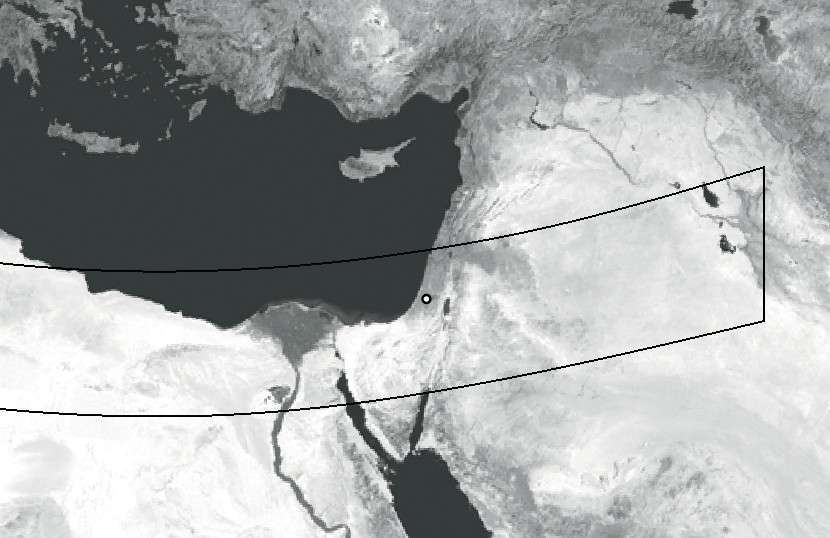
Matching the calendars of ancient civilizations to our own is a challenge, so historians are keen to find events they can date precisely, like eclipses. New application of this technique may date the Israelite conquest of Canaan, and possibly the reigns of important Pharaohs.
The Bible refers to Joshua winning a battle to seize part of Canaan by praying; “Sun, stand still at Gibeon, and Moon, in the Valley of Aijalon. And the Sun stood still, and the Moon stopped, until the nation took vengeance on their enemies.” This violates numerous laws of physics – religious authorities even used the implication the Sun goes around the Earth to oppose Copernicus.
However, Professor Sir Colin Humphreys of the University of Cambridge argues the original Hebrew text could be interpreted to mean the Sun stopped shining, rather than stopped moving. In other words, a solar eclipse. Others have previously reached the same conclusion but have been unable to identify a suitably timed total solar eclipse.
However, in Astronomy and Geophysics, Humphreys points out the ancients drew no distinction between total eclipses and annular eclipses, where the Moon is in the further part of its orbit and too distant to block the entire Sun.
Humphreys calculates an annular eclipse was visible from the Middle East in the late afternoon of October 30, 1207 BC. If Humphreys is right, this might be the oldest eclipse ever recorded, although a couple of older candidates have been claimed based on disputed translations.
 The calculated path over which the Sun would have appeared as just a thin ring around the Moon in 1207 BC, taking over the whole of Caanan. Humphreys and Waddington/Astronomy and Geophysics
The calculated path over which the Sun would have appeared as just a thin ring around the Moon in 1207 BC, taking over the whole of Caanan. Humphreys and Waddington/Astronomy and Geophysics
Such an event would certainly have become part of local storytelling among people who had never seen anything similar, particularly if it happened to interrupt, and possibly change the course of, an important battle.
Humphreys links the eclipse to Egyptian chronology through a famous inscribed granite block, which refers to the Pharaoh Merneptah having conducted a military campaign in Canaan, including a victory over the Israelites. This is considered to establish their presence there by that time. Humphreys explained to IFLScience he regards another Biblical verse as indicating Joshua’s victory roughly coincided with an intervention from Egypt. He thinks this was Merneptah’s campaign, dating his reign and therefore that of his immediate predecessor, Ramesses the great.
Humphreys’ conclusions are certainly open to questioning, even if the passage does refer to an eclipse. For one thing, calculating eclipses prior to 1000 BC is considered questionable, as slight changes to the Earth’s rotation could throw things out. Moreover, Humphreys’ proposed Egyptian timeline requires Merneptah’s venture into Canaan to match the eclipse’s date, not only relying on his interpreation of the Bible as indicating the presence of Egyptian forces nearby at the time, but requiring that Egyptian sorte into Canaan to be the one Merneptah’s granite references. Historians and astronomers will have plenty to investigate.
Source:
Source Article from https://worldtruth.tv/scientists-may-have-just-found-evidence-for-an-ancient-biblical-story/
Related posts:
Views: 0
 RSS Feed
RSS Feed















 November 3rd, 2017
November 3rd, 2017  Awake Goy
Awake Goy  Posted in
Posted in  Tags:
Tags: 
















